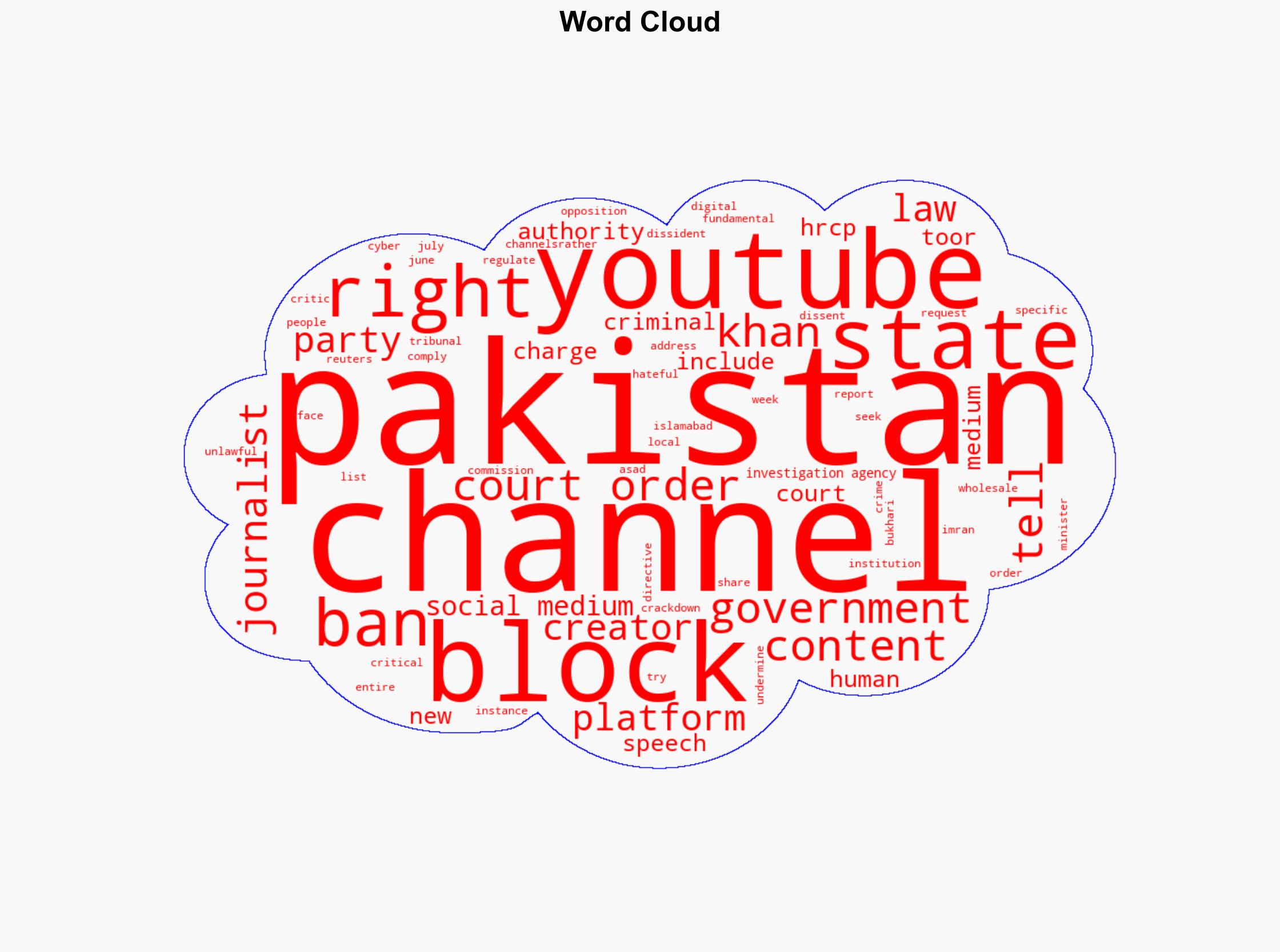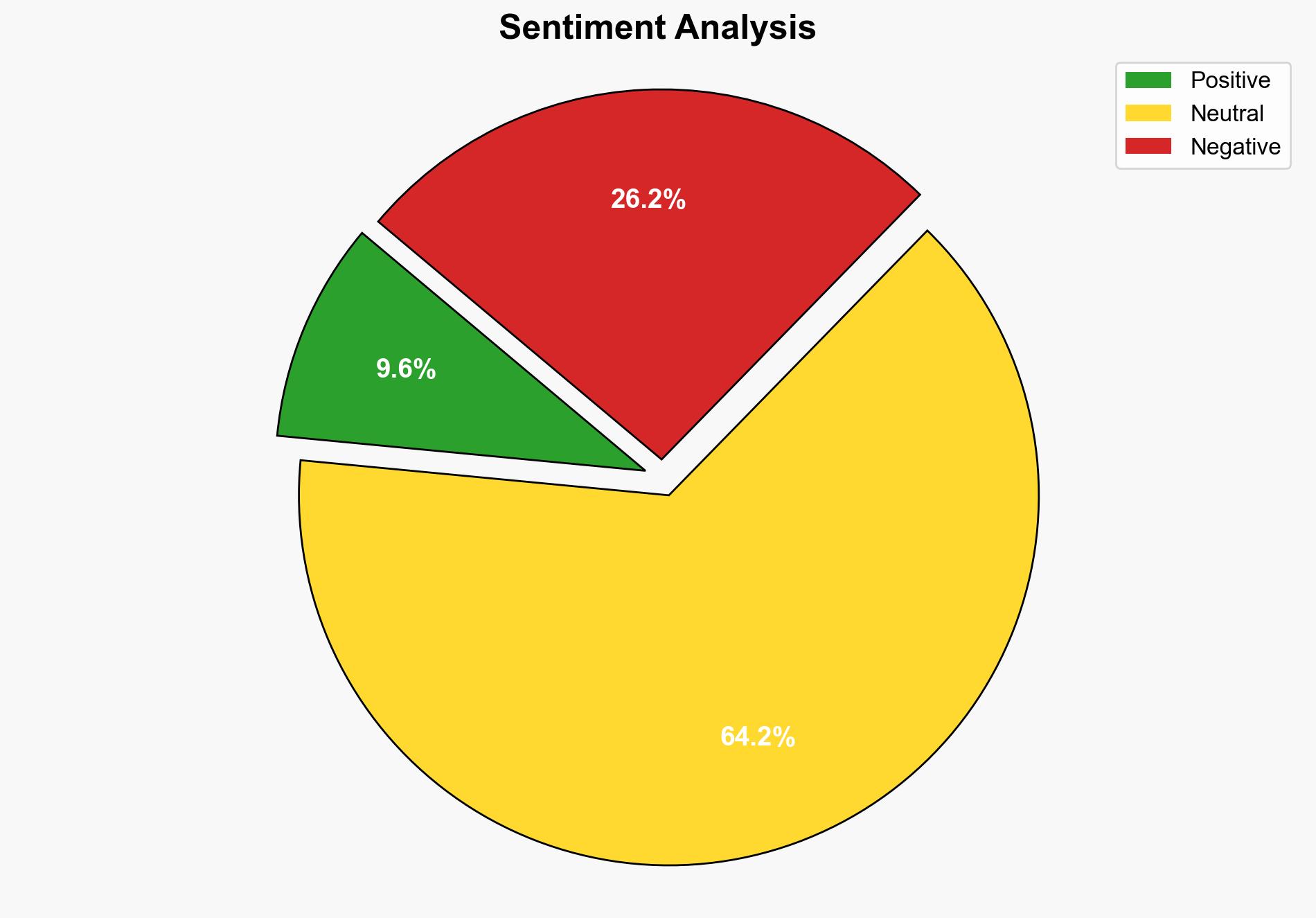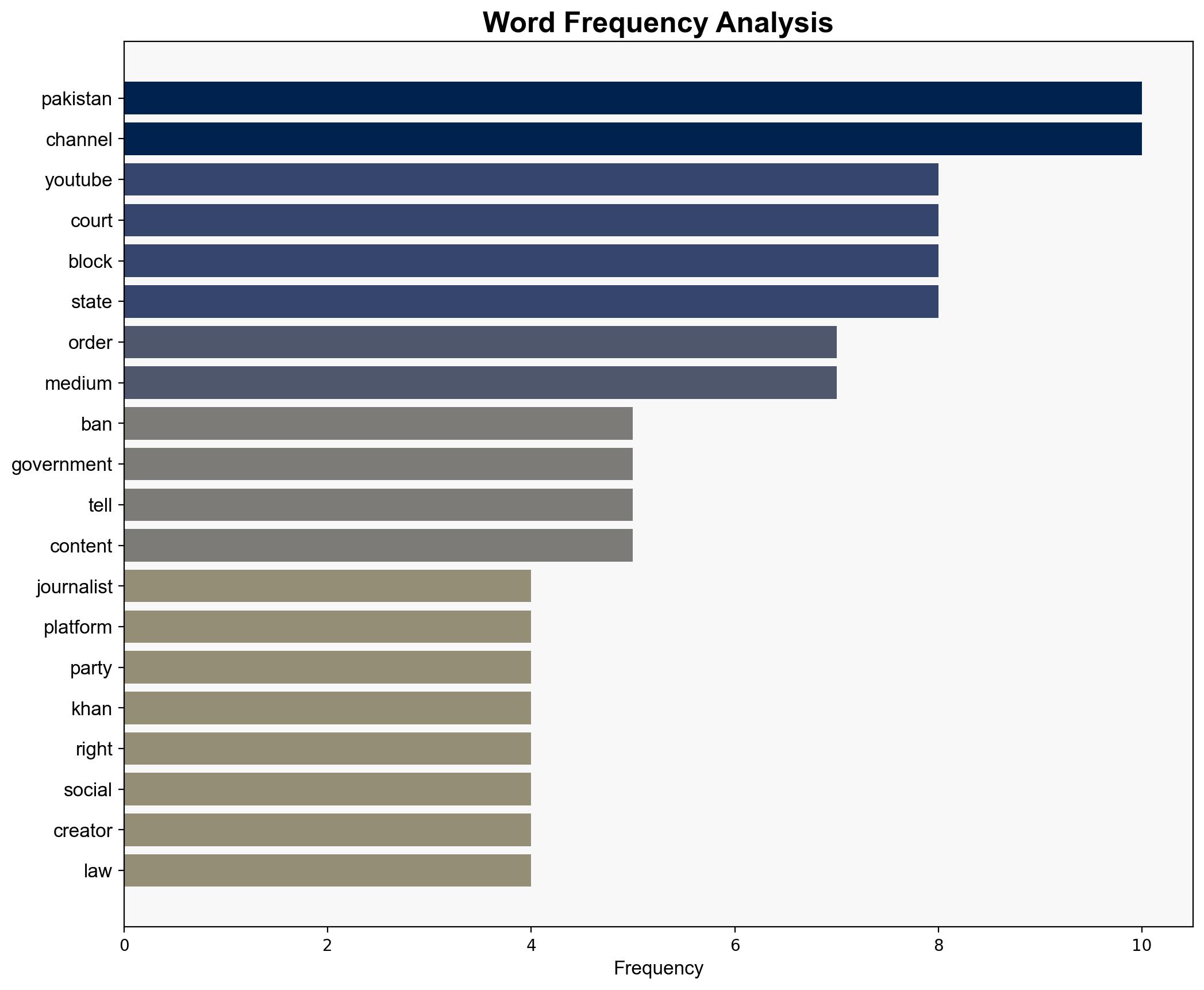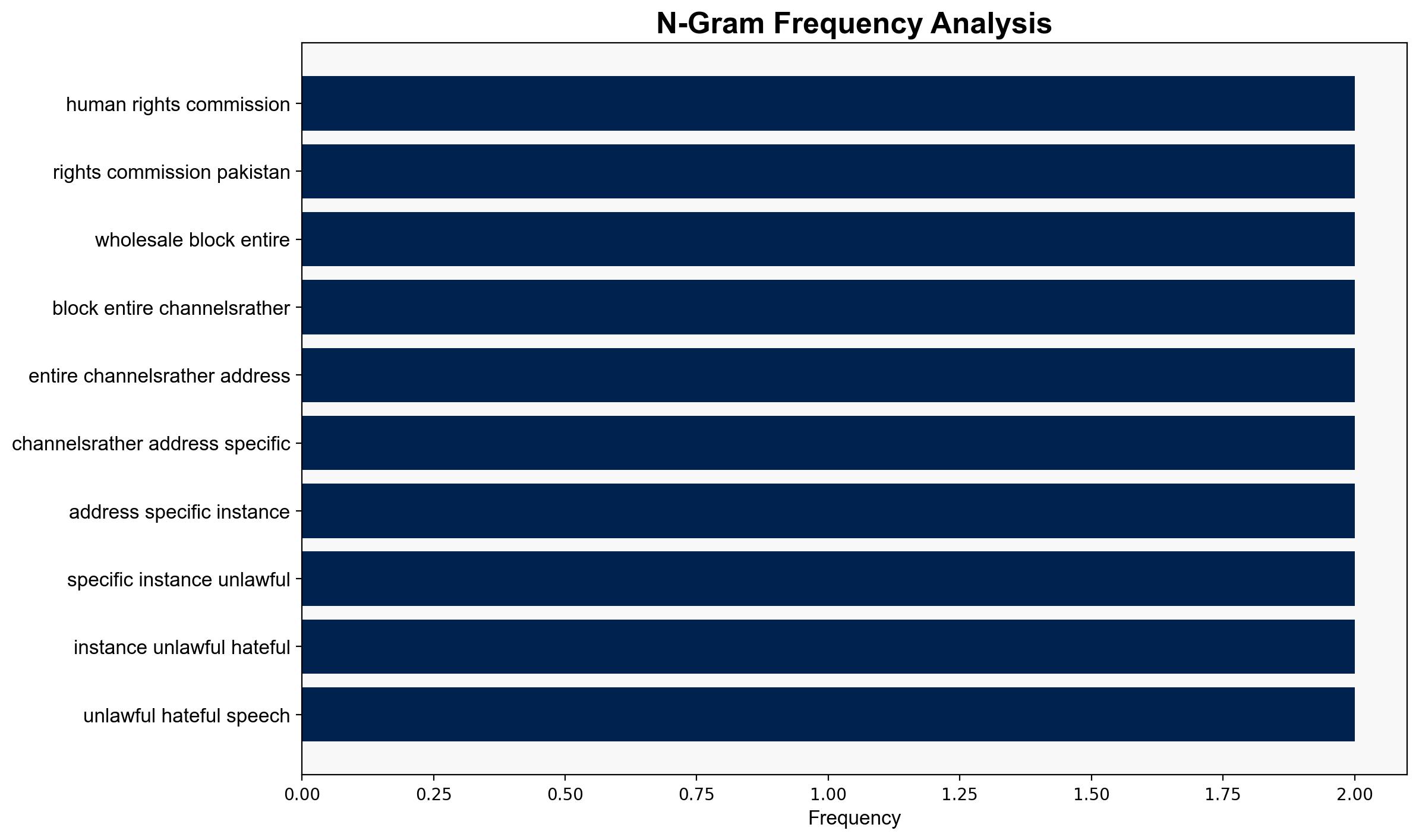Pakistan seeks YouTube ban on 27 opposition and journalist channels – Al Jazeera English
Published on: 2025-07-09
Intelligence Report: Pakistan seeks YouTube ban on 27 opposition and journalist channels – Al Jazeera English
1. BLUF (Bottom Line Up Front)
The Pakistani government is pursuing a court-ordered ban on 27 YouTube channels associated with opposition figures and journalists. This move is perceived as an attempt to suppress dissent and control narratives critical of the government and state institutions. The action raises significant concerns about freedom of speech and could set a precedent for digital censorship in the region. It is essential to monitor the situation for potential escalation and international reactions.
2. Detailed Analysis
The following structured analytic techniques have been applied to ensure methodological consistency:
Causal Layered Analysis (CLA)
– **Surface Events**: The immediate push for a YouTube ban following a court directive.
– **Systemic Structures**: Legal and regulatory frameworks enabling censorship and control over digital platforms.
– **Worldviews**: Government’s perspective on national security versus freedom of expression.
– **Myths**: The narrative of national unity and security justifying suppression of dissent.
Cross-Impact Simulation
– Potential for increased tension with international entities advocating for digital rights.
– Possible influence on neighboring countries’ policies regarding digital censorship.
Scenario Generation
– **Best Case**: The ban is lifted following international pressure, leading to improved digital freedoms.
– **Worst Case**: Escalation of digital censorship, resulting in widespread suppression of dissent.
– **Most Likely**: Partial implementation of the ban with ongoing legal challenges and international scrutiny.
3. Implications and Strategic Risks
The ban could exacerbate political tensions within Pakistan and strain relations with international allies advocating for human rights. It may also embolden similar actions in other countries, leading to a regional trend of digital censorship. The suppression of dissent could fuel underground movements and increase cyber risks as opposition groups seek alternative platforms.
4. Recommendations and Outlook
- Engage with international digital rights organizations to advocate for freedom of expression in Pakistan.
- Monitor regional responses to assess the potential for a broader trend of digital censorship.
- Develop contingency plans for increased cyber activity from opposition groups seeking alternative communication channels.
- Scenario-based projections suggest maintaining diplomatic pressure could mitigate the worst-case scenario.
5. Key Individuals and Entities
– Imran Khan
– Asad Toor
– Imran Riaz Khan
– Matiullah Jan
– Habib Akram
– Zulfikar Bukhari
6. Thematic Tags
national security threats, cybersecurity, counter-terrorism, regional focus





